Physical activity can help preserve and improve your cognitive function and fend off dementia, stroke and other health concerns

You know exercise is good for your body. But have you ever thought about what it can do for your brain? That’s right: With every step you take, every mile you pedal or every lap you swim, you’re enhancing your cognitive fitness.
Advertisement
Cleveland Clinic is a non-profit academic medical center. Advertising on our site helps support our mission. We do not endorse non-Cleveland Clinic products or services. Policy
Neuropsychiatrist Dylan Wint, MD, talks about exercise and the brain, explaining how your workouts can improve your brain function, boost your mood and more.
Video content: This video is available to watch online.
View video online (https://cdnapisec.kaltura.com/p/2207941/sp/220794100/playManifest/entryId/1_203gjk91/flavorId/1_5f3sgelj/format/url/protocol/https/a.mp4)
Learn how exercise helps support brain health.
Physical activity is thought to benefit your brain in several ways. Studies show that it can:
Researchers aren’t yet sure of the exact mechanics of how exercise affects cognitive function, but Dr. Wint says there are some possibilities, based on existing research.
For starters, working out helps your body pump blood to your brain.
“Your brain is a very greedy organ, requiring a lot of blood to function,” he explains. “The better the cardiovascular system can supply the brain with blood, the more likely it is that your brain will stay healthy.”
Exercise also releases dopamine, serotonin and endorphins — three “feel-good” hormones that double as neurotransmitters, or chemical messengers between your nerve cells.
“Exercise appears to have a direct impact on increasing hormones that are important for nerve cell health and releasing neurotransmitters that are important for wellbeing, cognition, sleep and other functions,” he adds.
Advertisement
Exercise is also known to:
“Each of these benefits, in turn, helps your brain retain memory and optimal functioning,” Dr. Wint says.
In general, what’s good for your body is also good for your brain. So, let’s dig deeper into some of the main ways exercise can boost the brain and mental health.
In the simplest terms, “cognitive decline” means your brain isn’t working as well as it should anymore. But exercising can help your brain work better and prevent slips in brain function.
“There’s fairly strong and consistent evidence to show that people who exercise regularly are less likely to develop cognitive decline,” Dr. Wint shares. “In fact, exercise is probably one of the most effective factors that can reduce your risk.”
In a 2022 study, for example, 454 older adults underwent yearly physical exams and cognitive tests for 20 years. They were given accelerometers, which tracked their movement and physical activity around the clock. Participants who moved more scored better on memory and thinking tests, which are both markers of cognitive function.
“Cognitive decline can rob you of your abilities to perform tasks independently,” he notes. “So, anything that prevents that loss of function is critically important.”
If you’ve already been diagnosed with cognitive decline, exercise may prevent it from getting worse.
One study looked at older people with mild cognitive impairment (MCI). It found that participants who exercised showed improvements in both thinking and memory. People who combined exercise with the DASH diet (an eating style designed to lower blood pressure) improved even more.
“People who exercise regularly after developing mild levels of cognitive decline can slow the progression — particularly the loss of abilities that can come with declining cognition,” Dr. Wint says. “Even if you’ve already lost some cognition, exercise can still be helpful in preserving function.”
Exercise is thought to lower your risk of developing neurodegenerative disorders, like Alzheimer’s disease and other types of dementia. These severe forms of cognitive decline cause progressive damage to your brain.
“Exercise does seem to reduce the risk of developing Alzheimer’s disease, as well as other forms of dementia or other causes of cognitive decline,” Dr. Wint confirms.
The 2022 study on physical activity and cognitive decline found that participants with higher levels of physical activity had a 31% lower risk of dementia. Another study, which looked at nearly 90,000 older adults in the U.K., found that at least 35 minutes of physical activity each week was associated with a 41% lower risk of developing dementia.
Advertisement
“With more exercise, that risk goes down even further,” he adds.
Exercise is good for your brain in ways that extend beyond cognition, too. Physical activity has been shown to have a powerful effect on mental health — so powerful, in fact, that the American Psychiatric Association recommends exercise as a treatment option for depression, whether alone or paired with treatments like psychotherapy and medication.
A review of 218 studies found that the most effective forms of exercise for treating depression are:
“Exercise can help both prevent and treat depression and some forms of anxiety,” Dr. Wint says. “That’s especially true of exercising outdoors in the sunshine, which provides additional mood benefits.”
Thinking of asking a pal to go on a hike or signing up for a group fitness class? Studies show that exercising with other people brings benefits of its own. “When you combine exercise with socialization, that also contributes to the brain-health-promoting effects of exercise,” he reports.
A stroke happens when a blood clot or broken vessel prevents blood from getting to your brain. But exercising has a positive effect on your whole cardiovascular system, which lowers your stroke risk.
Advertisement
In one large study, people who engaged in moderate levels of physical activity were shown to have a 36% lower risk of stroke than those who didn’t exercise at all.
“Exercise likely helps reduce the risk of stroke because of its effects on high blood pressure and high blood sugar, which are both stroke risk factors,” Dr. Wint posits. “But there are probably a few independent factors at play, too.”
Exercise promotes neuroplasticity — basically, your brain’s ability to learn and adapt throughout life. Aerobic exercise, in particular, is associated with positive changes in the brain that keep it healthy and adaptable. (Think cardio, swimming, walking, etc.)
One study showed that aerobic exercise increased the volume of the hippocampus — the part of your brain responsible for memory and learning. In that study, older adults who engaged in aerobic exercise were found to score higher on executive function.
Working out regularly has been shown to help improve the quality and duration of sleep, which is a major facet of overall brain health. It does this in a few ways:
Advertisement
Exercise is one of the best things you can do for your body and for your brain. To get brain-boosting effects, most people should aim for 150 minutes of exercise per week.
But remember: Exercise doesn’t exist in a vacuum.
“It’s also important to follow a healthy diet and to pursue activities that work your brain, including socializing with others,” Dr. Wint urges. “Take care of any medical problems that crop up, including hearing or vision loss, which can affect your brain health if they’re not addressed.”
Not exercising yet? It’s better to get started now than never at all.
“It’s never too early and it’s never too late to apply exercise and the other pillars of brain health,” Dr. Wint encourages. “Don’t worry about whether you’re doing the perfect amount of exercise or the perfect type of exercise. Just get started — because you can’t get going if you don’t get started in the first place.”

Sign up for our Health Essentials emails for expert guidance on nutrition, fitness, sleep, skin care and more.
Learn more about our editorial process.
Advertisement

The ‘Six Pillars of Brain Health’ offers a game plan to maintain cognitive function

The tickling response may be more about protection than enjoyment
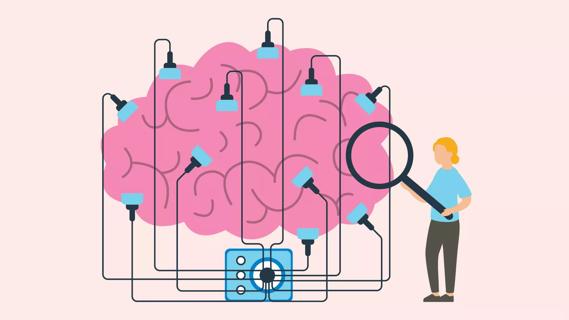
You can build mental muscle by challenging your mind and giving it new experiences
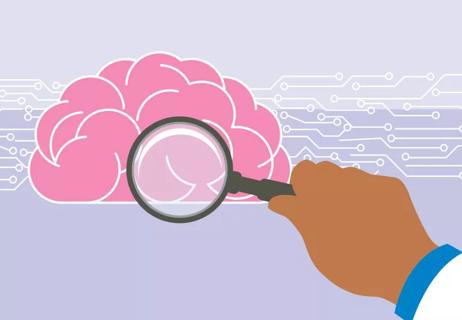
This first-of-its-kind study aims to identify biomarkers of neurological disorders
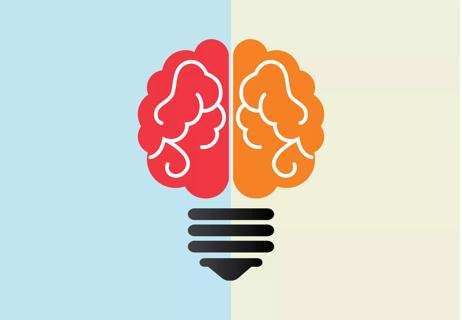
Different parts are responsible for different things, but you use both sides all the time
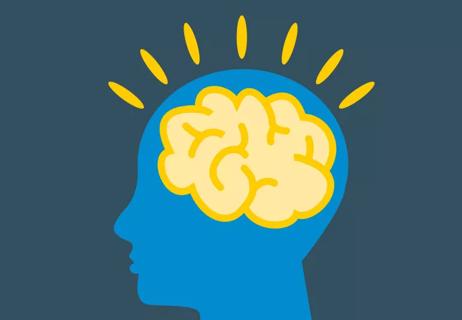
Add some brain food to your plate
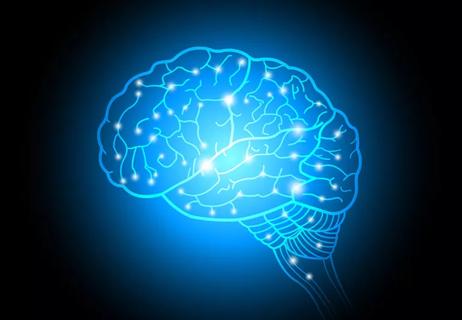
A collection of fascinating facts

Give your brain the break it needs

Even small moments of time outdoors can help reduce stress, boost mood and restore a sense of calm

A correct prescription helps your eyes see clearly — but as natural changes occur, you may need stronger or different eyeglasses

Both are medical emergencies, but they are very distinct events with different causes